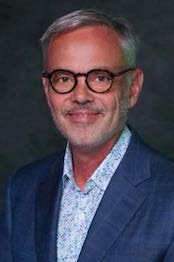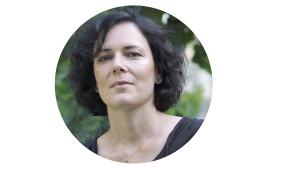This annual center lecture series is co-organised by the Center for Nursing Philosophy, in the Sue & Bill Gross School of Nursing, and co-sponsored by the Center for Medical Humanities.
2023-2024
![4th joint colloquium[81].jpg](/sites/default/files/2024-02/4th%20joint%20colloquium%5B81%5D.jpg)
Race and the Fiction of Sovereign Embodiment
Zakiyyah Iman Jackson
This talk draws from a spate of her recent work on the intractable racial inheritance of our ideals of bodily autonomy and selfdetermination. It asks if ethics’ hegemonic premises are foundationally and seemingly insuperably antiblack, what does that suggest about our potential to craft a counterhegemonic mode of response to debility and premature death while in the maw of antiblackness’ domination of diagnosis and cure?
Zakiyyah Iman Jackson is associate professor of English and the director of the Center for Feminist Research at the University of Southern California, USA. Her research explores the literary and aesthetic aspects of Western philosophical and scientific discourse and investigates the engagement of African diasporic literature and visual culture with the historical concerns, knowledge claims, and rhetoric of Western science and philosophy.
2022-2023

What Are Traditional Medicinal Substances When Separated from Traditional Ways of Life?
Mark Lazenby
ABSTRACT: trend in integrative health is to identify and apply in conventional treatment modalities medicinal substances used, for instance, by indigenous people groups. In this lecture, I will rely on Pierre Hadot’s understanding of “way of life,” (Philosophy as a Way of Life, trans. M. Chase, Blackwell, 1995), to argue that separating a medicinal substance from the way of life in which it had its original application changes the substance’s mechanism of action. For Hadot, people adhered to a particular way of life for the purpose of engaging in its practices. These practices were spiritual because they intended to effect a modification and a transformation in the subject who practiced them. Adherents did not affirm the way of life’s world view as true, but rather, as a guide for how one needed to live for this effect to occur. The mechanistic separation common in the current trend in integrative health seeks to identify the truth of a substance’s action on the body but neglects the effect the way of life’s spiritual practices was to have on adherents. Absence of these spiritual practices means that the substance’s mechanism of action has changed. The question remains about whether ways of life’ spiritual practices can be incorporated into integrative health when traditional medicinal substances are used.
Dean and Professor Mark Lazenby began his lifelong pursuit of positive social transformation in southern California, working as a community organizer with underserved youth in East Los Angeles. The Blythe, CA, native brings with him a belief that the profession of nursing is a powerful driver of social transformation, particularly for social and racial justice and sustainability and health.
As an international expert on psychosocial cancer care, Dean Lazenby has studied the spiritual support of cancer patients from minority religious backgrounds and the implementation of emotional distress screening in routine cancer care.
Prior to joining UCI, Dean Lazenby was professor of nursing and philosophy and served as the associate dean for faculty and student affairs at the University of Connecticut School of Nursing from 2019 to 2022 and associate professor of nursing at Yale Nursing School and jointly appointed as an associate professor of religion and health at Yale Divinity School from 2009 to 2019.
Dean Lazenby earned his PhD (2001) in the philosophy of religion from Boston University. He earned his master's in nursing (2009) at Yale and became an advanced practice oncology nurse after witnessing how nurses cared for his dying parents.
2021-22

'Vulnerabilised Individuals and Opaque Institutions'
Havi Carel
ABSTRACT. In this talk I develop the concept of vulnerabilisation to pick out a large and diverse group of people who suffer vulnerabilities caused or exacerbated by their situations. I outline how individuals can be made vulnerable by interpersonal encounters and interactions with social structures. I then discuss vurlnerabilisation in relation to what I call ‘institutional opacity’. An opaque institution is especially problematic for individuals and groups already rendered vulnerable during their interactions with that institution, and a prime example are ill persons in the context of healthcare institutions, which I discuss. I articulate the features of an encounter between a vulnerabilised individual and an opaque institution and end by tracing two ameliorative strategies that could help repair this interaction.'
Havi Carel is Professor of Philosophy at the University of Bristol. She specializes in phenomenological research on the experience of illness. Her monographs include Life and Death in Freud and Heidegger (Rodopi, 2006), Illness: The Cry of the Flesh (Acumen, 2013), which was shortlisted for the Wellcome Trust Book Prize, and Phenomenology of Illness (Oxford University Press, 2016).
2020-21
'Clean as a Good: Questions of Valuing'
Annemarie Mol
ABSTRACT: What it is to value, to perform something or other as good – to judge it, to seek to improve it? These questions my small team and I are currently exploring by studying the quality clean, the ideal of cleanliness and the activity of cleaning in diverse practices, in and around Amsterdam. So far we have learned that clean is a divided good – the corona pandemic has aggravated this: the celebration of hygienic cleanliness leads to environmental pollution. Related to that, clean is a relative good: as I wash my body, I dirty the water. Oftentimes, clean is an inconclusive good: fallen leaves may be classed as ‘natural’ and okay, or rather as slippery, dangerous, and therefore dirty. Clean is also an ephemeral good: however proud you may be of your cleaning work, after some time it begs to be repeated. And clean is a strikingly sticky good, with blame, rejection, moralizing, and so on, targeting people who allegedly do not serve it. The list can be expanded. It suggests that valuing is a multifaceted engagement; an intricate soul of everyday practices.
Annemarie Mol is Professor of Anthropology of the Body at the University of Amsterdam. Trained as a philosopher and a social scientist, she has published on issues to do with bodies, technologies, materialities, caring, and eating. She is a co-editor of Complexities: Social Studies of Knowledge Practices (2002), Care in Practice: Tinkering in Clinics, Homes and Farms (2010) and On Other Terms: Interfering in Social Science English (2020) and the author of The Body Multiple: Ontology in Medical Practice (2003), The Logic of Care (2008) and Eating in Theory (2021).
